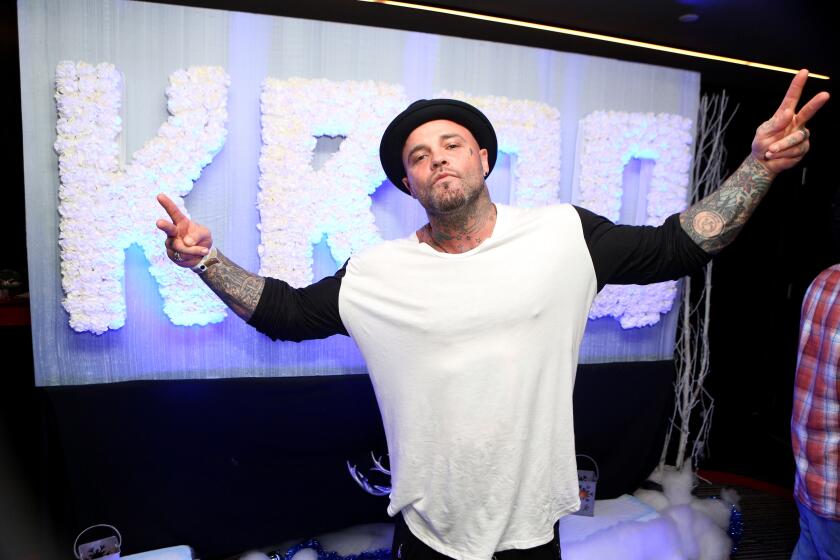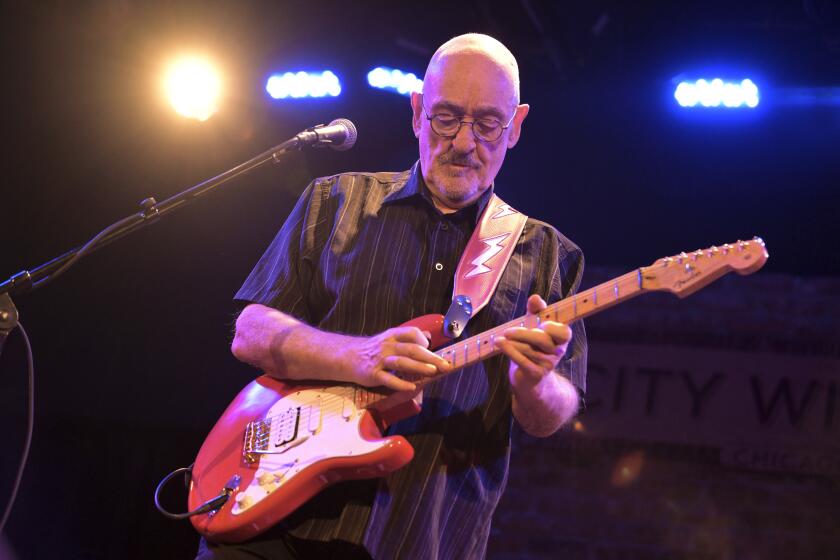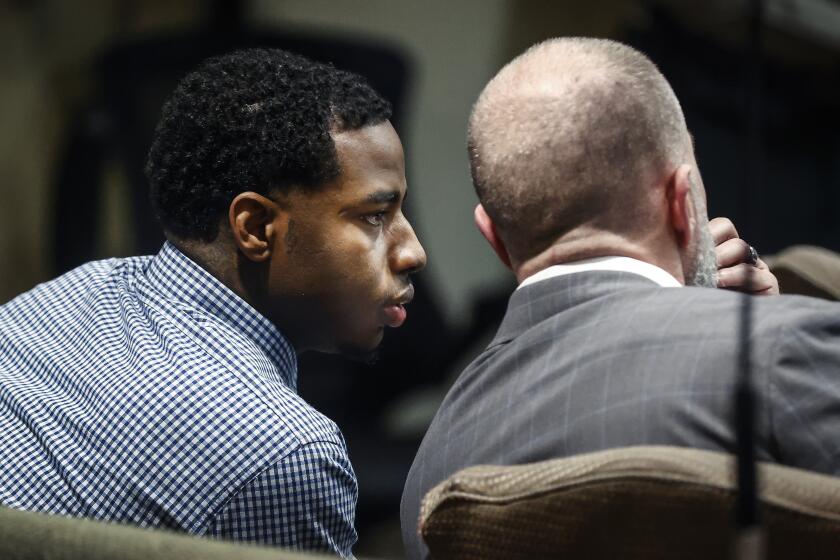Delving into Johnny Cash’s life story with biographer Robert Hilburn
A brief question-and-answer session between staff writer Randy Lewis and former Los Angeles Times pop music critic Robert Hilburn about his new book, “Johnny Cash — The Life.”
Question: What’s your memory of hearing Johnny Cash for the first time?
Hilburn: I was driving to school at Reseda High School — I was a junior, and it was early 1956. I had a ’49 Ford. I was listening to the country station, and ‘Folsom Prison Blues’ comes on … It didn’t sound like the stuff I was hearing on the pop stations. It wasn’t like Elvis singing ‘Hound Dog’ or ‘I wanna be your teddy bear’; it wasn’t Chuck Berry singing ‘Sweet Little Sixteen,’ all of which I loved. It didn’t even sound like country. When I heard that line ‘I shot a man in Reno [just to watch him die],’ I didn’t know you could say that on the radio. I thought, ‘Whoa!’ This is going to get me in trouble — or it’s going to get somebody in trouble. … I went to my little record store in Northridge — Anita’s Record Shop — and I got his record.
HILBURN FOR THE TIMES: Johnny Cash | Bob Dylan | Michael Jackson | Eminem
Question: How did you come to accompany him to the watershed Folsom Prison show in 1968? What was the reaction at the paper?
Hilburn: I was trying to get a job at the L.A. Times doing freelance writing. The entertainment editor said, ‘Give me some story ideas.’ I saw that [Cash] was going to Folsom Prison. The idea that the man who wrote ‘Folsom Prison Blues’ was going to sing it at Folsom Prison, I thought, you can’t beat that. Somebody else at the paper said, ‘No, we don’t want to give any space to that drug addict.’ He had been arrested in El Paso for smuggling nearly 1,000 pills [from Mexico], and his picture had been in newspapers in handcuffs. That was his image at that time.
Question: There’ve been many biographies about his life, the Oscar-winning biopic “Walk the Line,” and Cash wrote two autobiographies. What convinced you there was enough material left for one more book?
Hilburn: When I saw the [‘Walk the Line’] film — I don’t mean to criticize the film or the other books that were kind of rushed out after he died — but I didn’t feel that was Johnny Cash; I didn’t feel they were telling the story of Johnny Cash. I felt that he was a profound artist who deserved to have his story told. I went to [Cash’s manager] Lou Robin and said, ‘Lou, what percentage of the story is left to be told?’ And he said ‘80%.’ I virtually started researching the book the next day.
Question: You interviewed him numerous times throughout his life and spent considerable time with him during the final decade of his life. What was left to discover?
Hilburn: I thought I knew Johnny Cash pretty well. Writing this book showed me how little I knew about Johnny Cash’s real life. I knew the guy and his heart, but I didn’t know his life story. And it makes me think how little we really know any of our most prized artists.
Question: What’s the big takeaway for you out of doing the book?
Hilburn: The ultimate message he repeated over and over and over is that no matter how much you stumble, no matter how much you’ve sinned, no matter how much you fall, you can be redeemed. And on his deathbed, he had his faith, his [long-estranged] daughters were there, he and June had found this love they’d always wanted, and he had this music. So Johnny Cash was redeemed. He lived his own message. I just think that final period is really inspiring.
Twitter: @RandyLewis2
More to Read
The biggest entertainment stories
Get our big stories about Hollywood, film, television, music, arts, culture and more right in your inbox as soon as they publish.
You may occasionally receive promotional content from the Los Angeles Times.










